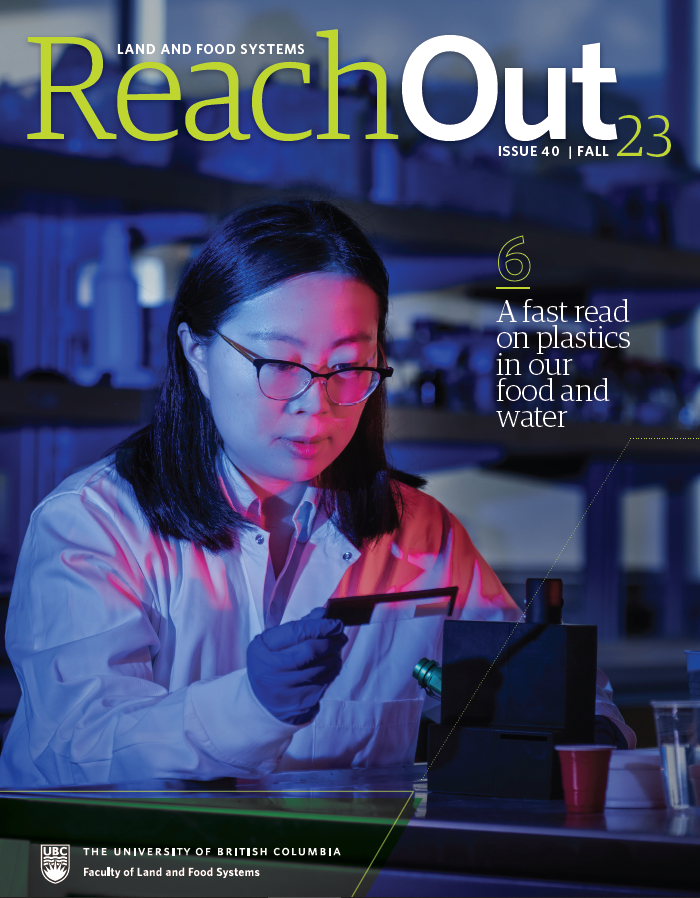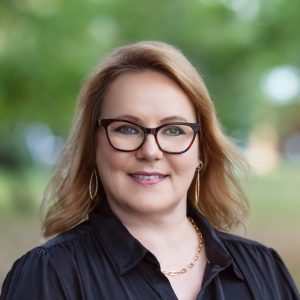Tagged with: Food Nutrition and Health
Xiaonan Lu
Tagged with: Food Nutrition and Health
Maria Cecilia Roa Garcia
Tagged with: Applied Biology
Gurcharn Singh Brar
Tagged with: Applied Biology, Faculty, Plant Science
2024 Pacific Agriculture Show
2024 Pacific Agriculture Show
From January 25 to 27, we attended the Pacific Agriculture Show in Abbotsford and connected with hundreds of farmers and agri-food producers.
The Pacific Agriculture Show is the largest agriculture exhibition in B.C. and attracts a range of exhibitors from the livestock and horticulture sectors.
Faculty, staff and graduate students brought interactive display from their labs to showcase their research to the producers who attended. Learn about the lab groups here.

Photos from the Pacific Agriculture Show in Abbotsford



Tagged with: 2024
Dean Rickey Yada moves to University of Alberta in October
Dean Rickey Yada moves to University of Alberta in October
January 29, 2024 – Dean Rickey Yada has accepted a position at the University of Alberta as the Dean of the Faculty of Agricultural, Life & Environmental Sciences (ALES). He will start this new position on October 1, 2024, upon the completion of his Deanship in LFS, “the Friendly Faculty”, on September 30, 2024.
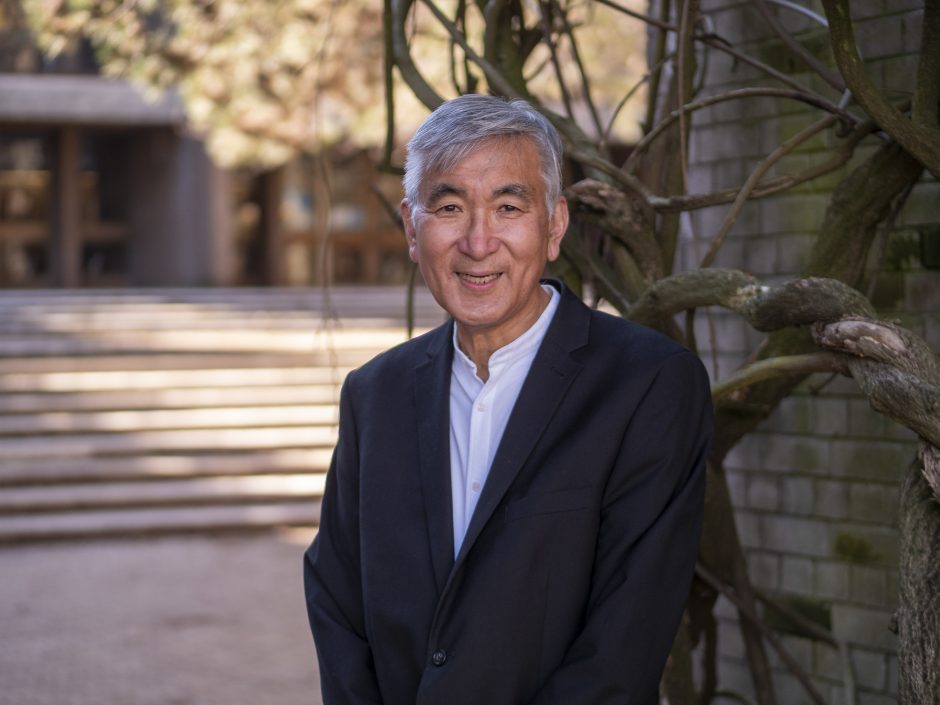
“I’ve had the honour and privilege of being Dean in the Faculty of Land and Food Systems since 2014,” says Dr. Yada. “I want to thank the wonderful community in LFS – you make coming to work a joy. When I started, I was amazed by the breadth of research in LFS across the entire food system, and the passion and drive shown by faculty, students and staff who strive to make the world a better place, both in our local community and globally.”
Under his tenure, Dr. Yada worked with faculty and staff to oversee several groundbreaking projects. The UBC Dairy Education and Research Centre in Agassiz recently underwent barn renovations and installed robotic equipment, making it one of the largest robotic milking research sites in North America.
Later this year, the Food and Beverage Innovation Centre at UBC will open – a core facility in the BC Ministry of Agriculture and Food’s food hub network. The Centre aims to foster growth in the local economy with improved access to novel, high-tech equipment, and with the delivery of continuing education and support services for food businesses.
There is a search underway, led by the UBC Provost’s office, for a new Dean for the Faculty of Land and Food Systems. For details, you can visit: https://academic.ubc.ca/academic-community/searches/dean-faculty-land-and-food-systems
Tagged with:
Flavour of the Month: Cinnamon Apple Chia Seed Pudding
Flavour of the Month: Cinnamon Apple Chia Seed Pudding
Hannah Reyes, LFS Development and Alumni Engagement Assistant, is in her final year in our Food, Nutrition and Health program and her flavour of the month is Cinnamon Apple Chia Seed Pudding. Read about how she choose the Faculty of Land and Food Systems for her studies and what she will miss at UBC when she graduates.
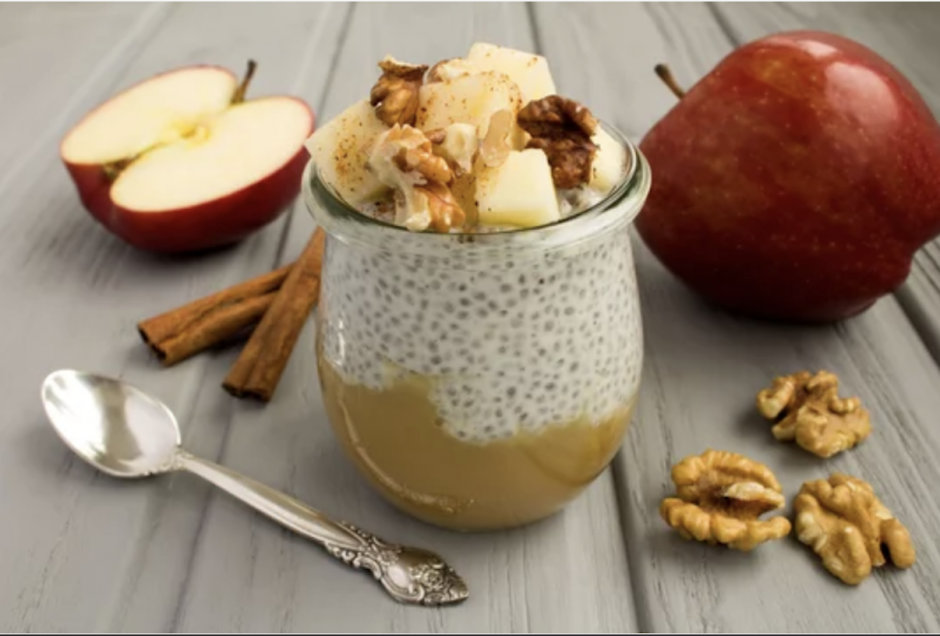
Why the Cinnamon Apple Chia Seed Pudding?
I’m often quite busy throughout the day, so I always like to have a snack with me to energize myself. The Cinnamon Apple Chia Seed pudding is the perfect choice as it is not only delicious but also nutritious and filling. It’s easy to make and convenient to bring around.
What are three adjectives that describe you?
Kind, Determined, Intuitive.
Why did you choose the Faculty of Land and Food Systems and how did you become interested in the Food, Nutrition and Health program?
Food and nutrition, along with exploring their applications in diverse contexts, including health, have always intrigued me. Consequently, when the time came to choose a program after high school, the Food, Nutrition, and Health program stood out as the ideal fit. It offered flexibility in exploring my interests and provided a platform to delve into my passion for food science, nutrition, and their applications in public health. I sought an environment that would nurture my curiosity and fuel my passion, surrounded by diverse individuals on a beautiful campus close to home. The Faculty of Land and Food Systems at UBC has proven to be the perfect place for me to learn and grow in these aspects.
What activities, programs, and extracurricular activities have you been involved in at UBC?

Over my four years at UBC, I joined the Land and Food Systems Undergraduate Society (LFS|US) program, working as a Social Media Coordinator within the Communications team. This role not only allowed me to be promoted and attend numerous events but also provided the opportunity to build lasting connections with individuals who have become good friends throughout my university journey. This position not only nurtured my creativity in marketing but also honed crucial skills, including effective time management.
In addition to my involvement with LFS|US, I had the chance to work as a Research Assistant at the Food Processing Engineering Lab (FPEL) with Dr. Anubhav Pratap-Singh and Dr. Baldelli. Our focus was on creating a sustainable vitamin snack using cranberries and their leftovers. This has been my favorite experience so far as it provided a closer look at the process involved during the research and development stage of a product.
Moreover, with my final year living on campus, I wanted to make the most of it by ensuring I was aware of the events and programs on campus. So, I joined the UBC Campus and Community Planning Team as an Engagement Coordinator. I have enjoyed it so far as I can collaborate with the team to promote sustainability, active transportation, safety, and various events supporting mental health and well-being.
How long have you worked in LFS and what is your role? Any insights or knowledge that you have gained from your current work-learn experience within the LFS Faculty so far?
For the past two years, I’ve been working in the Faculty of Land and Food Systems (LFS) as a Development and Alumni Engagement Project Assistant with the LFS Development and Alumni Team. My role encompasses diverse responsibilities, including social media content marketing, event and program planning for current LFS students and recent alumni, and administrative tasks like tracking points and reaching out to alumni.
What I find truly rewarding about my work-learn position is the dynamic nature of the tasks. Each day presents something different, enabling me to step outside my comfort zone and acquire valuable new skills. This has been both challenging and enriching, providing me with a well-rounded experience. Hearing insights from recent LFS alumni has been particularly enlightening, fostering new connections and showcasing the diverse fields of work they have entered with their LFS degrees.
Working with the Development and Alumni Engagement Team has been a positive experience, thanks to the team’s tight-knit and supportive community. This environment has allowed me to take on various roles, contributing significantly to both my personal and professional growth.
What are the aspects of UBC that you’ll miss the most, and what remains on your UBC bucket list before graduating?
What I’ll miss the most about UBC is the tight-knit community, including my friends, professors, and co-workers, who have offered tremendous support throughout my years at the university. Additionally, I’ll miss the stunning UBC campus, which provides the best views of the mountains and easy access to the beach. Finally, before I graduate, I aim to visit every cafe and restaurant on campus and explore all the buildings and study areas at UBC.
Tagged with: Alumni
Parmjit Bains: UBC Alumni Award of Distinction
Parmjit Bains: UBC Alumni Award of Distinction
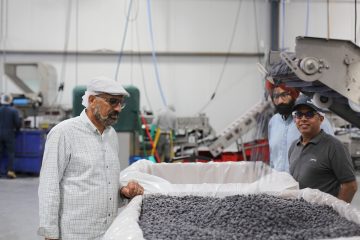
To build a successful business from the ground up takes fortitude to face challenges and a sharp instinct to see an opportunity on the horizon and act on it – something Parm Bains (BSc Agr 1979) has done for the last 34 years in the Fraser Valley.
To recognize his longstanding success, contributions to the berry industry, and service to UBC, Bains was recognized with a 2023 UBC Alumni Award of Distinction. This is just one of many accolades for Bains.
Bains is President and CEO of Westberry Farms, a fully integrated grower, processor and packer of fresh and frozen berries. The company serves about 50 other growers in the Fraser Valley, and Westberry has grown to 500 hectares of grower-owned family farms. Across the Fraser Valley, there are presently about 20 grower packing facilities that handle the 75 million kilograms of blueberry crops produced each year in the province.
Back in 1989, Bains and his wife Satwinder bought a 16-hectare blueberry farm in Abbotsford. Having worked on his cousin’s vegetable farm in Surrey as a teenager, Bains knew agriculture was in his blood.
“I developed a keen and profound love for the land and farming. This led me to UBC to study agriculture, where I majored in crop protection and horticulture.”
When the North America Free Trade Agreement came into effect in 1994 between the U.S., Canada and Mexico, many multinational packing and processing plants in the Valley closed their doors, finding it difficult to compete with their larger counterparts from the U.S.
However, it was a time when the blueberry industry started taking off and this created an opportunity for grower/packing facilities to fill the vacuum created by the plants that closed down.
Bains and four other growers partnered to start Westberry Farms in 1997 to process and pack locally grown blueberries for the fresh and frozen Canadian market. Over the years, Westberry expanded its market base globally and started distributing to countries such as Japan, South Korea, New Zealand, Vietnam, India, and others. This created additional opportunities for Westberry to expand its base of growers as the industry grew.
In peak season, Westberry Farms receives up to 100,000 kilograms of berries daily for the fresh market and employees have a 24-hour turnaround window in which to sort, package and precool the berries in preparation for shipment. This quick turnaround ensures the berries stay crisp and fresh in transition to their final destination.
“We aim for a two-week shelf life once they arrive in stores. We ship across Canada, as well as across the U.S. to such places as California, Texas, Chicago, and Florida. Also, we ship internationally. Consumers in South Korea and Japan like the B.C. highbush blueberries for their thin skin, size, flavour and crispness.”
His own business aside, Bains is well-known for being a spokesperson and leader in the berry industry, even addressing trade challenges that appear every few years. He represented the local industry on the U.S. Highbush Blueberry Council, and served as a Chair of their Board of Directors from 2014-2017 – the only non-American to hold this position. He’s been active with the BC Blueberry Council since the 1990s, and is known for being an early adopter of new technology that can support provincial growers.
For his work in the community, Bains has received many awards, including a Doctorate of Letters (Honoris Causa) from the University of the Fraser Valley (UFV) in 2009. This recognized his support in creating the Centre for India-Canadian Studies at UFV (now known as the South Asian Studies Institute); the Goswami Ganesh Dutta Sanatan Dharma College in Chandigarh, India; and, establishing the BC Regional Innovation Chair in Canada-India Business and Economic Development at UFV, for which he played a lead role in fundraising.
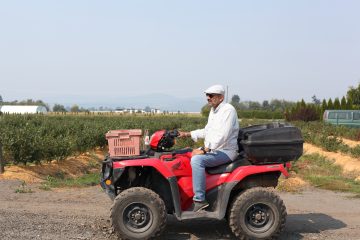
At UBC, he’s been a two-term Chair of the Faculty of Land and Food Systems Faculty Advisory Council, an industry board that provides guidance and insight to the Dean and leadership team. He’s also been a mentor for students, a panellist speaker, and alumni representative throughout the years at several events.
Looking ahead, Bains sees both new opportunities and challenges. He’s optimistic about B.C. developing new value-added products using local blueberries – such as dried berries, new pet food formulas and dairy products – and making further inroads into Asian export markets. Also, what he calls the ‘halo effect’ of the health benefits of blueberries will continue to create strong demand.
Challenges on the horizon include addressing a shortage of labour, for which he is looking into new blueberry varieties that can be mechanically harvested. Also looming are climate issues that are affecting pollination, and the length of the growing season in B.C., especially as competitors in South America benefit from long growing seasons and cheap input costs.
Dean David Kitts
Dean’s Message: David Kitts, Dean pro tem

October 2024 – I am excited to take the helm as Dean pro tem and work within all areas of the Faculty of Land and Food Systems. I have the privilege of interacting with faculty and staff, wonderful LFS students, and with our many donors, partners and alumni. I consider it an honour to represent the Faculty in this role.
I’m extremely proud of the quality of research and teaching taking place in LFS, especially the learning experiences we provide to our students, many of whom become thoughtful leaders and innovators in their fields. I firmly believe the people of LFS are making a unique impact in the community.
Since 2013 I’ve been Associate Dean of Research in the Faculty and, prior to that, I was Director of the Food, Nutrition and Health Program. As Associate Dean of Research, I oversaw activities associated with our research mission, both domestic and international. I worked with a small – but mighty – team to benchmark research productivity and ensure our continued success and reputation as a first-class research Faculty at UBC. We supported a substantial growth in research funding between 2016 and 2023 – a period which saw LFS’s average annual funding per faculty member rise from $198,000 to approximately $354,000, with more than 95% of LFS research faculty holding competitive Tri-council funding.
As a three-time alumni of the university, I’ve spent most of my career here – starting in 1983 as UBC-NSERC Research Fellow (URF) in the Department of Food Science when LFS was called the Faculty of Agricultural Sciences.
My goal as Dean is to support people, listen to ideas, and ensure we continue to focus on critical agri-food issues that include, climate change, animal welfare, food innovation, safety and nutrition; pillars to ensure food security for all.
I invite you to learn more about LFS – our amazing undergraduate and graduate programs, our diverse research areas bringing forth cutting-edge research and innovation, and the many ways we are making a positive impact in local and global communities to ensure success of Canada’s economic diversity.
Sincerely,
David Kitts
Visit Dr. David Kitts’ profile.
Karen Taylor
Honours Bachelor degree in Business Economics from the University of Saskatchewan,
MBA in Agribusiness and Economics from the University of Guelph
PhD in Agricultural Economics from Oklahoma State University
FRE 515 - Agribusiness Management in the Master of Food & Resource Program
HUNU 515 - Business & Entrepreneurship in Dietetics in the Master of Dietetics Program
FNH 415 - Business Concepts in Food, Nutrition & Heath
FRE 306 - Introduction to Global Food Markets
LFS 101 / FRST 201 - Principles of Microeconomics with Applications to Land and Food Systems
Taylor, Karen W., Francis M. Epplin, Derrell S. Peel, Brian Fieser and Gerald W. Horn. “Optimal Grazing Termination Date in Dual-Purpose Winter Wheat Production.” Journal of Agricultural and Applied Economics, 42 1 (February 2010: 87-103).
Taylor, Karen W., Francis M. Epplin, Gerald Horn, and Derrell S. Peel. 2007. “Value of an Extended Grazing Season and Value of Monensin Supplements for Stocker Grazing Winter Wheat Pasture.” American Journal of Farm Managers and Rural Appraisers.
Tagged with: 2023, Faculty, Food and Resource Economics
